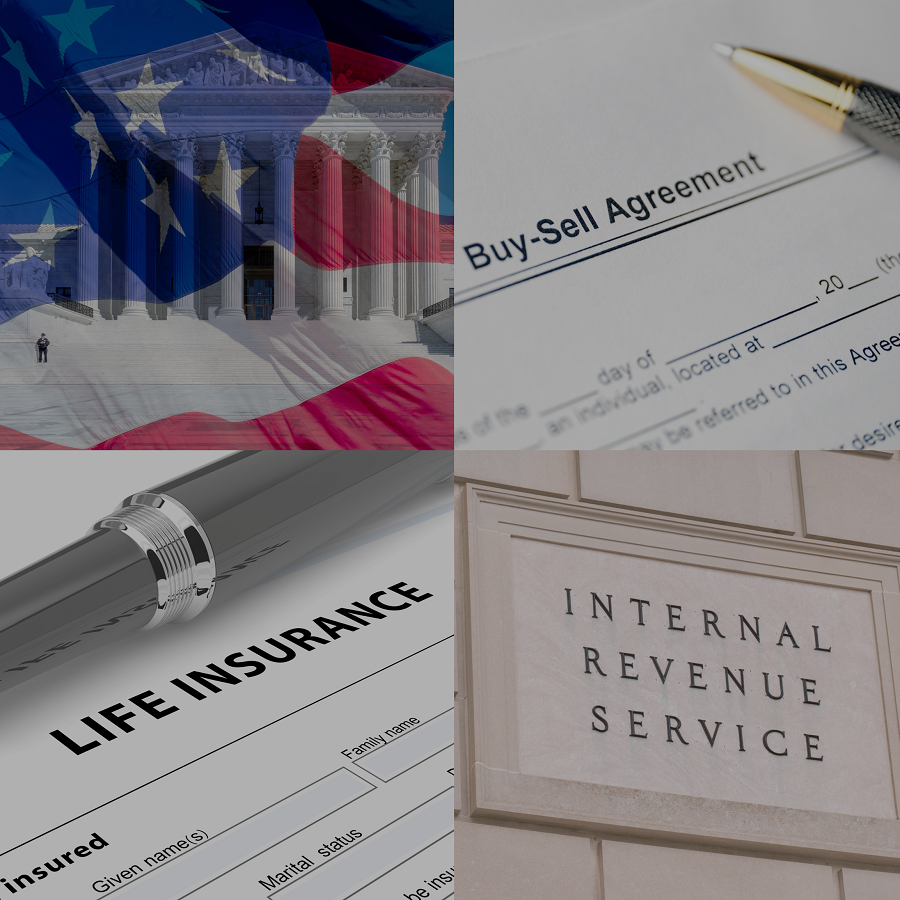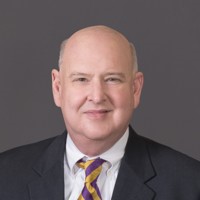What Every Estate Planner Needs to Know About
the Ramifications on Planning Following the
SCOTUS Connelly Decision
 The United States Supreme Court recently unanimously affirmed the decision in Connelly Est. v. Internal Revenue Service, ruling in favor of the IRS in a dispute over taxing shareholders’ life insurance policies. This ruling now jeopardizes a long-time planning strategy utilizing buy-sell agreements. This has been raising a lot of questions about this decision’s implications and ramifications on the planning recommendations estate planners need to consider with their clients.
The United States Supreme Court recently unanimously affirmed the decision in Connelly Est. v. Internal Revenue Service, ruling in favor of the IRS in a dispute over taxing shareholders’ life insurance policies. This ruling now jeopardizes a long-time planning strategy utilizing buy-sell agreements. This has been raising a lot of questions about this decision’s implications and ramifications on the planning recommendations estate planners need to consider with their clients.
We have brought in long-time co-collaborators, Edwin J. Morrow, III, J.D. and L. Paul Hood, Jr., JD, LL.M., to present this timely and practical presentation entitled, “Planning After the United States Supreme Court’s Decision in Connelly v. Internal Revenue Service”.
In this 104-minute presentation, Paul and Ed will cover the following
- Review of the facts of the case and a brief overview of the United States Supreme Court’s decision
- Must a qualified business appraiser consider any entity redemption obligation pursuant to the fair market value standard of value?
- Should estate planners be encouraging clients to revisit or review current buy-sell agreements?
- Do all redemption buy-sell agreements need to be changed?
- Did the United States Supreme Court either expressly or impliedly overrule or criticize the Eleventh Circuit’s decision in Blount Est. v. Comr.?
- Did the United States Supreme Court either acknowledge or resolve, expressly or impliedly, any alleged circuit split in its Connelly Est. decision?
- Did the United States Supreme Court rule out a subject company’s redemption obligations ever having a material adverse impact on the valuation of the subject company at the enterprise level?
- Must a qualified business appraiser consider the entire buy-sell agreement in valuing an interest pursuant to the fair market value standard of value?
- Some pundits have made much out of the United States Supreme Court’s silence about IRC Sec. 2703-was that important?
- What are the big lessons from the Connelly Est. decision?
- And much, much more!
Your purchase includes an instantly downloadable video and audio recording, along with PDF handout materials. A PDF transcript is available as an add-on for an additional fee.
- Program Title: Planning After the United States Supreme Court’s Decision in Connelly v. Internal Revenue Service
- Speaker: Edwin P. Morrow III, L. Paul Hood. Jr.
- Duration: 104 minutes
Purchase
ABOUT THE SPEAKER
Edwin P. Morrow III
J.D., LL.M., MBA, CFP®, CM&AA®

Ed is currently an Attorney at Kelleher + Holland, LLC. He is a legal professional with a distinguished background in tax law, having transitioned his focus to specialize in estate planning and trust law. Holding the prestigious designation of Certified Mergers and Acquisitions Advisor®, Edwin also serves as a non-public FINRA arbitrator and holds the esteemed position of Fellow at The American College of Trust and Estate Counsel. Renowned nationally, Edwin is among the most sought-after experts in the field, known for his depth of knowledge and expertise. He co-authored the acclaimed publication, “The Tools & Techniques of Estate Planning,”…
L. Paul Hood. Jr.
J.D., LL.M.

Paul is an author, speaker and consultant on tax, estate and charitable planning. A native of Louisiana (and a double LSU Tiger), Paul Hood obtained his undergraduate and law degrees from Louisiana State University and an LL.M. in taxation from Georgetown University Law Center before settling down to practice tax and estate planning law in the New Orleans area. Paul has taught at the University of New Orleans, Northeastern University, The University of Toledo College of Law and Ohio Northern University Pettit College of Law. Paul has authored or co-authored nine books and over 500 professional articles on estate, charitable…
IMPORTANT NOTICE REGARDING CE CREDIT
The Ultimate Estate Planner, Inc. and the presenter are not registered Continuing Education Sponsors and this program is not pre-approved for continuing education credit for any state or regulatory agency.
However, please note that each program includes a Certificate of Completion and, depending on the license and the regulatory agency for which governs a participant’s CE credit, some professionals may be able to self-report his or her participation and receive credit. It is the responsibility of the participant to complete any process necessary to seek self-reported CE credit for his or her participation. By registering for a teleconference (or purchasing on On-Demand program), you understand that CE credit is not guaranteed or warranted by the presenter or The Ultimate Estate Planner, Inc.
